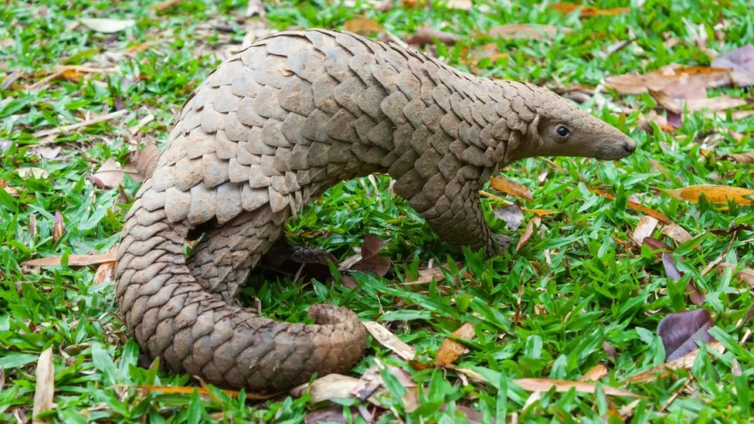Nigeria has burned $1.4m (£1.2m) worth of pangolin scales in a stand against trafficking, officials said.
It is the first time the nation has publicly destroyed seized wildlife products for this reason.
The pangolin is one of the world's most trafficked mammals - their scales are in high demand in traditional Chinese medicine.
Nigeria is a major transit hub for African pangolin scales and other wildlife products trafficked to Asia.

"These seized items represent the past we leave behind, but the destruction signifies the future we are determined to build for our planet," Environment Minister Iziaq Adekunle said before the burning took place in Nigeria's capital, Abuja.
"The destruction of these seized items is a powerful statement of our resolve to protect our environment, conserve our wildlife, and combat the illegal trade that drives species to the brink of extinction."
Almost four tonnes of pangolin scales were destroyed alongside seized leopard, python and crocodile skins.
The agency had confiscated the scales in collaboration with the United Nations Office on Drugs and Crime (UNODC) and a pan-African alliance named the Elephant Protection Initiative.

In August, the leaders of a global wildlife trafficking gang were convicted for smuggling pangolin scales after a four-year investigation and a trial in Nigeria.
And last year, Nigerian customs officials seized 1,613 tonnes of pangolin scales and arrested 14 people, Nigeria's Environmental Standards and Regulations Enforcement Agency said.
Pangolins are the only mammals in the world to be covered in scales, which are made from keratin, the same substance found in human fingernails.

Four species live in Africa, across countries in the south, east and centre of the continent. The creature is near extinct in Nigeria, so pangolins smuggled from there are likely to be from other countries, UNODC said.
Asia is home to the other four species, although they have been totally wiped out in the continent's vast southeast region.
According to animal charity Wild Aid, up to 200,000 pangolins are thought to be taken from the wild every year. It is not known how many are left globally - the animals are notoriously difficult to monitor because they are shy and nocturnal.
According to UNODC, seizures of pangolin scales increased tenfold between 2014 and 2018.
Latest Stories
-
Ghana and Seychelles strengthen bilateral ties with focus on key sectors
6 mins -
National Elections Security Taskforce meets political party heads ahead of December elections
9 mins -
Samsung’s AI-powered innovations honored by Consumer Technology Association
29 mins -
Fugitive Zambian MP arrested in Zimbabwe – minister
47 mins -
Town council in Canada at standstill over refusal to take King’s oath
58 mins -
Trump picks Pam Bondi as attorney general after Matt Gaetz withdraws
1 hour -
Providing quality seeds to farmers is first step towards achieving food security in Ghana
1 hour -
Thousands of PayPal customers report brief outage
2 hours -
Gary Gensler to leave role as SEC chairman
2 hours -
Contraceptive pills recalled in South Africa after mix-up
2 hours -
Patient sues Algerian author over claims he used her in novel
2 hours -
Kenya’s president cancels major deals with Adani Group
2 hours -
COP29: Africa urged to invest in youth to lead fight against climate change
2 hours -
How Kenya’s evangelical president has fallen out with churches
3 hours -
‘Restoring forests or ravaging Ghana’s green heritage?’ – Coalition questions Akufo-Addo’s COP 29 claims
3 hours

